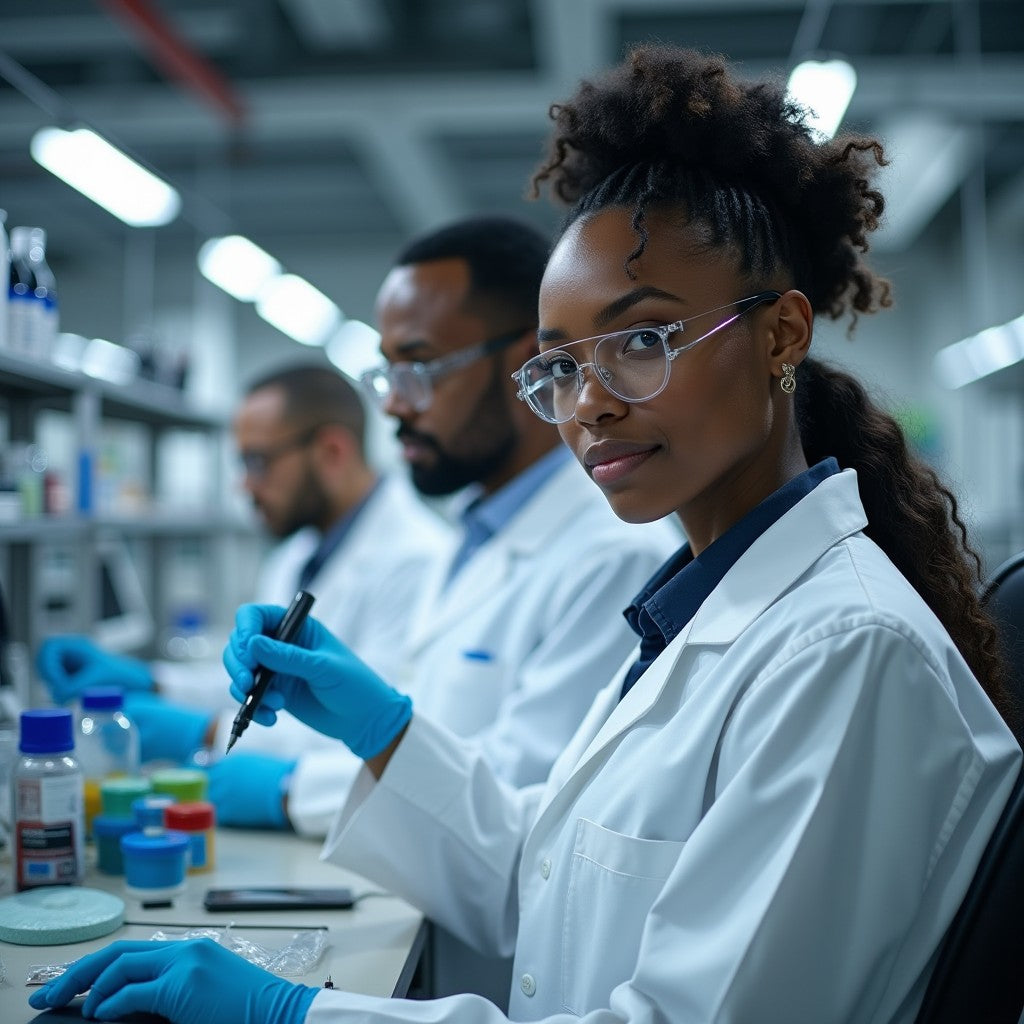
Industrial Microbiology: The Architects of Innovation
Share
Picture yourself at the cutting edge of technology, using tiny microbes to create biofuels, enzymes, and so much more. Welcome to the fascinating world of industrial microbiology.
The Role of Industrial Microbiologists
Imagine harnessing the power of microscopic organisms to improve our world. That’s what industrial microbiologists do every day. They work in a variety of fields, including pharmaceuticals, food production, environmental agencies, and biotechnology companies. These scientific wizards optimize processes like fermentation, which turns raw materials into valuable products such as alcohol and biofuels. They also clean up environmental messes through bioremediation—the process of introducing microorganisms, or other forms of life, to consume and break down environmental pollutants—and boost the production of vital bioproducts that we use in everyday life.
The Paycheck: What Can You Earn?
A career in industrial microbiology doesn’t just make you a scientific hero; it also pays well. Entry-level positions, which typically require a bachelor's degree, start around $60,000 per year. With further education, experience, and specialization, salaries can rise significantly. Experienced professionals, particularly those with advanced degrees such as a master’s or Ph.D., can earn up to $110,000 or more annually. These higher-paying roles often involve leading research projects, managing teams, or overseeing large-scale industrial processes. Additionally, certain sectors, such as pharmaceuticals and biotechnology, may offer higher salaries due to the specialized skills and knowledge required. The combination of a rewarding career in science and the potential for substantial financial remuneration makes industrial microbiology an attractive field for aspiring scientists.
The Education Path: What You Need to Know
So, how do you become an industrial microbiologist?
To thrive in industrial microbiology or biotechnology, college students should major in fields like microbiology, biotechnology, or chemical engineering. Participation in internships, research projects, and summer lab work in industrial, university, or hospital settings is crucial for gaining practical experience and standing out when applying for jobs or graduate school. Additionally, pursuing extracurricular activities, such as science fairs or working with a mentor, can enrich your understanding and bolster your resume.
Career advancement often requires further education—a master’s degree or Ph.D. can open opportunities to higher-level roles and responsibilities. Certifications can also enhance job prospects, and many organizations offer pathways for obtaining advanced degrees while working. Effective communication, both written and oral, along with strong project management and teamwork skills are essential in this field as they directly impact your ability to succeed and progress in industrial microbiology and biotechnology.
Why Choose Industrial Microbiology?
If you’re a problem-solver who loves science and technology, this field might be your perfect fit. Industrial microbiologists are the unsung heroes of the biotechnology world, blending science and innovation to push the boundaries of sustainable industry practices. It’s a chance to make a real impact on the world, improving everything from fuel efficiency to environmental health.
As you think about your future career, consider the incredible potential of industrial microbiology. It’s a field where you can truly be an architect of innovation, using the smallest organisms to make the biggest changes.
Additional Information:
Simbhq.org. “Society for Industrial Microbiology and Biotechnology Career Information,” 2014 https://www.simbhq.org/career-information/. Accessed 11 Nov. 2024.
ZipRecruiter. “Industrial Microbiologist Salary,” 2024. https://www.ziprecruiter.com/Salaries/Industrial-Microbiologist-Salary. Accessed 11 Nov. 2024.
Team, Metropolis. “Frontiers in Industrial Microbiology.” Frontiers, 2022. https://www.frontiersin.org/journals/industrial-microbiology. Accessed 11 Nov. 2024.
